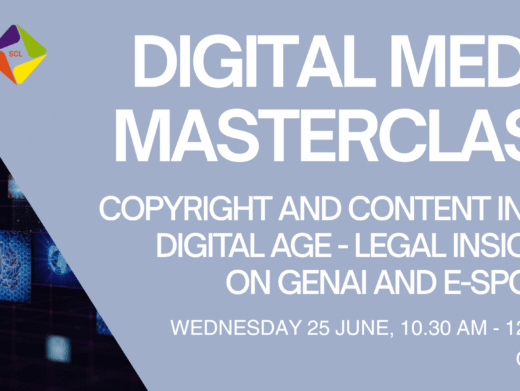The Court of Justice has ruled in the case of The Software Incubator Ltd v Computer Associates UK Ltd, Case C-410/19 that the electronic supply of computer software, licensed for an unlimited period in return for payment of a fee, is a “sale of goods” under the Commercial Agents Directive 86/653.
The judgment comes in the context of a referral from the UK Supreme Court regarding an appeal against the Court of Appeal’s decision in Computer Associates UK Ltd v Software Incubator Ltd, that the supply of software in the form of a download is not a sale of goods under the Commercial Agents (Council Directive) Regulations 1993 SI 1993/3053.
Computer Associates markets application service automation software for deploying and managing applications across a data centre. Computer Associates granted its customers, by electronic means, licences to use the software at issue in a specified territory for an authorised number of end users.
In 2013, Computer Associates had entered into an agreement with The Software Incubator. Later that year, Computer Associates terminated the agreement with The Software Incubator.
The Software Incubator sought damages under the Commercial Agents Regulations. Computer Associates disputed the classification of its relationship with The Software Incubator as a commercial agency contract. The High Court took the view that the ‘sale of goods’ included the supply of software. The Court of Appeal disagreed and held that software supplied to a customer electronically does not constitute goods. The case proceeded to the Supreme Court which referred the case to the Court of Justice.
The court’s decision
The UK court had asked if the concept of sale of goods in Article 1(2) of Directive 86/653 covers the supply, in return for payment of a fee, of computer software to a customer by electronic means where that supply is accompanied by the grant of a perpetual licence to use that software.
Directive 86/653 does not define the concept of ‘sale of goods’ and does not make any reference to national law concerning the meaning to be given to that concept.
The Court said that the meaning and scope of terms for which EU law gives no definition must be determined by considering their usual meaning in everyday language, while also taking into account the context in which they occur and the purposes of the rules of which they are part. The Directive refers in general terms to the concept of sale of goods without defining the terms sale or goods, which are not defined anywhere else in the Directive.
EU case law provides that “goods” means products which can be valued in money and may form the subject of commercial transactions. Therefore, it can cover computer software, because it has a commercial value and can form the subject of a commercial transaction.
In addition, software can be classified as goods irrespective of whether it is supplied on a tangible medium or, as in this case, by electronic download. Case law does not indicate any distinction according to the tangible or intangible nature of the goods concerned.
The Court has already held in the UsedSoft C-128/11 decision that from an economic point of view, the sale of a computer program on CD-ROM or DVD and the sale of such a program by downloading from the internet are similar, since the online transmission method is the functional equivalent of the supply of a material medium. Therefore, the term goods can cover computer software regardless of the medium on which that software is supplied.
A ‘sale’ is an agreement by which a person, in return for payment, transfers to another person his rights of ownership in an item of tangible or intangible property belonging to him. Regarding the sale of a copy of computer software, the Court held in the same case that the downloading of a copy of a computer program and the conclusion of a user licence agreement for that copy form an indivisible whole. Downloading a copy of such a program is pointless if the copy cannot be used by its possessor. Those two operations must therefore be examined as a whole for their legal classification. The Court has also taken the view that the making available of a copy of computer software by means of a download and the conclusion of a user licence agreement for that copy, intended to make the copy usable by the customer, permanently, and in return for payment of a fee designed to enable the copyright holder to obtain a remuneration corresponding to the economic value of the copy of the work of which it is the proprietor, involve the transfer of the right of ownership of that copy.
Therefore, the supply, in return for payment of a fee, of computer software to a customer by electronic means where that supply is accompanied by the grant of a perpetual licence to use that software can be covered by the concept of ‘sale of goods’ under the Directive.
The Directive provides for certain exclusions from the definition of commercial agent and the scope of the Directive, but none of those exclusions concerns the nature of the sale of goods. Also, the objective of the Directive is to protect commercial agents in their relations with their principals, to promote the security of commercial transactions, and to facilitate trade in goods between member states by harmonising their legal systems within the area of commercial representation. The effectiveness of the protection granted by Directive 86/653 would be undermined if the supply of software were excluded from the concept of sale of goods.
That interpretation would also exclude from the benefit of that protection persons carrying out, with the assistance of modern technology, tasks comparable to those carried out by commercial agents whose task is to sell tangible goods, in particular by identifying and approaching prospective clients.
Therefore, the conclusion of the court was that the concept of ‘sale of goods’ in Article 1(2) of Directive 86/653 covers the supply, in return for payment of a fee, of computer software to a customer by electronic means where that supply is accompanied by the grant of a perpetual licence to use that software.
The decision is still binding on the Supreme Court as it was referred before the end of the Brexit transition period. It is a significant decision as the classification of software is one which has kept the courts busy for many years.




